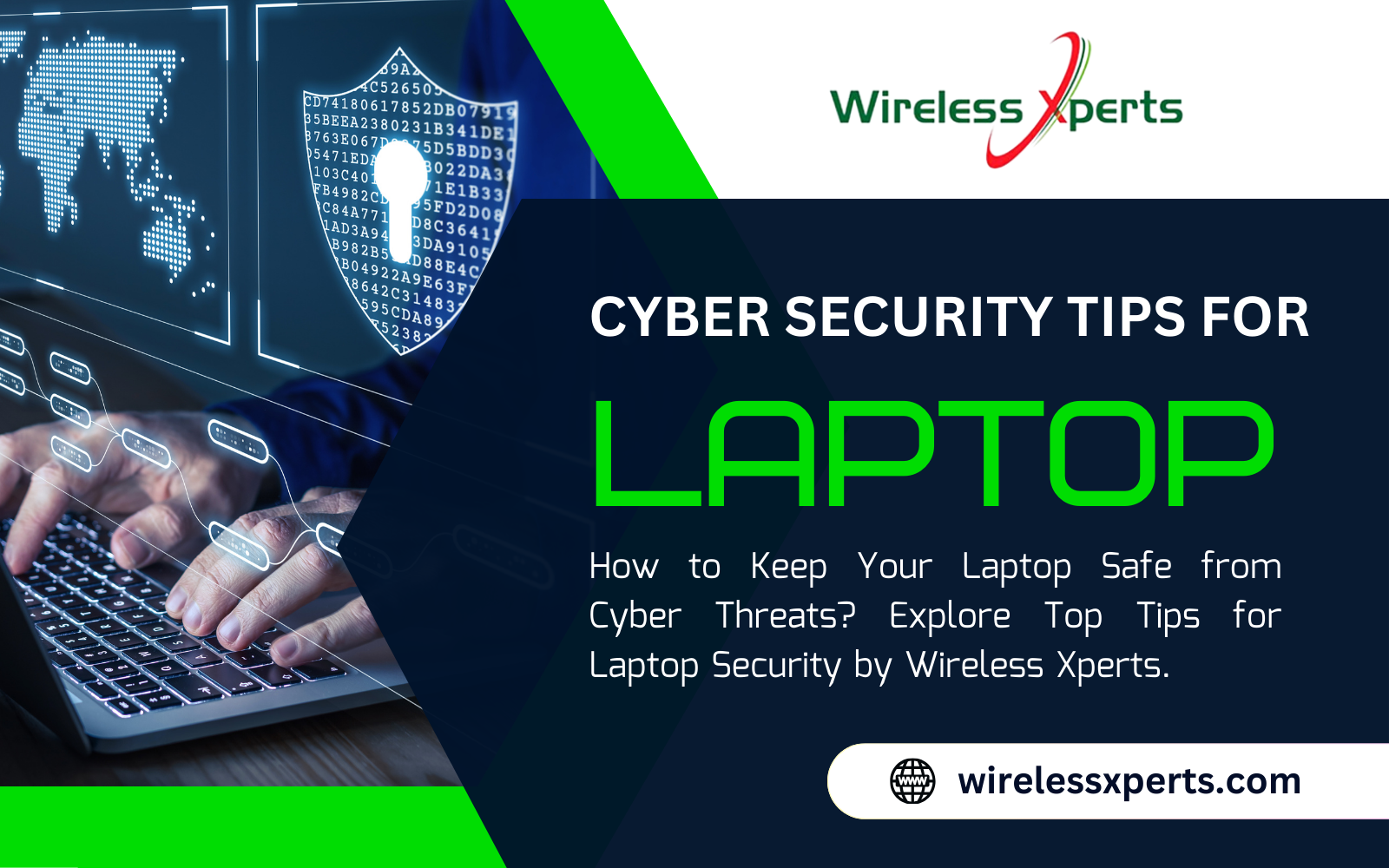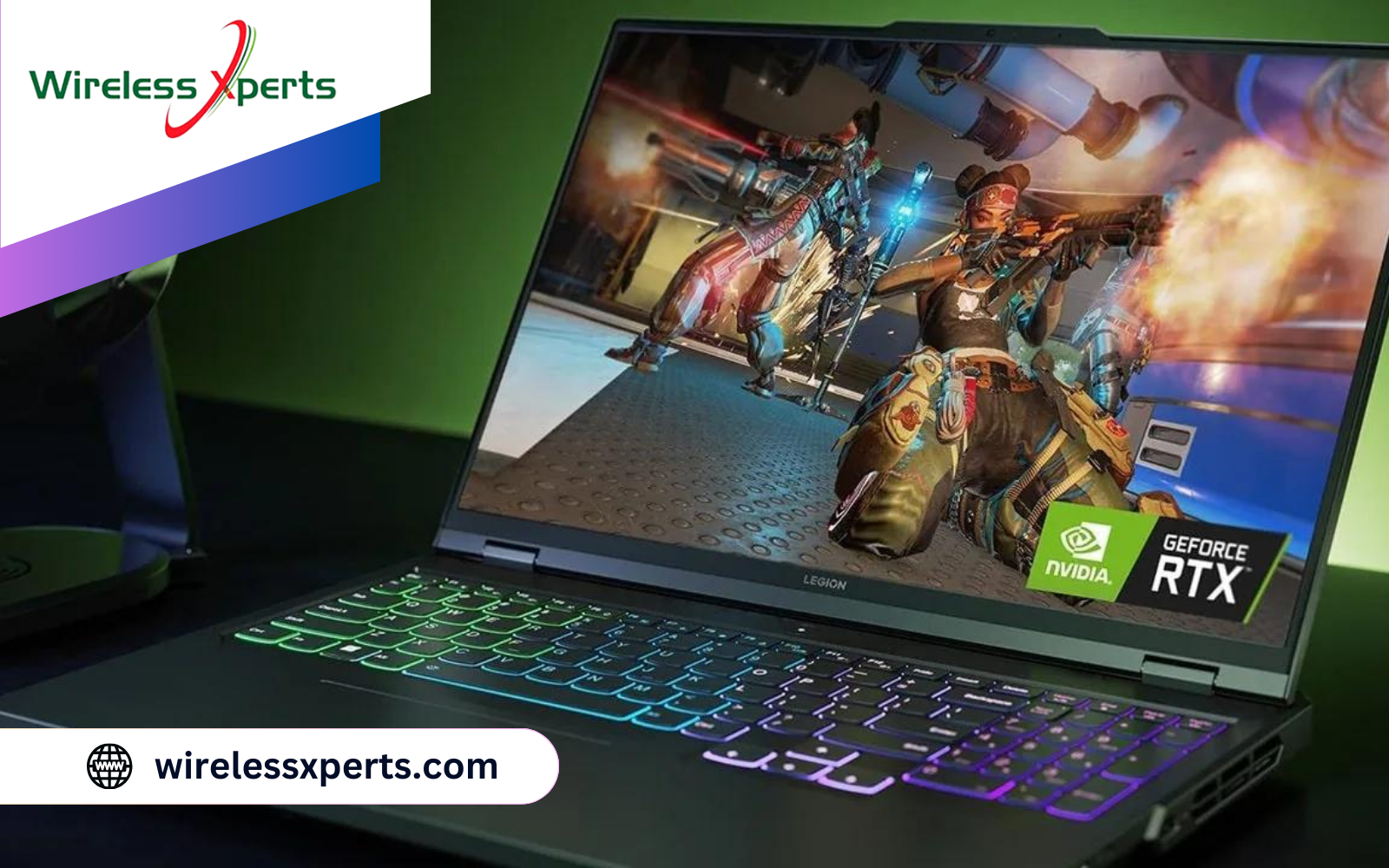How to Keep Your Laptop Safe from Cyber Threats? Top Tips for Laptop Security
-
 Chami Nelson
Chami Nelson
- News & Updates
- Mar 1, 2024
- views

In today's digitally connected world, our laptops are essential tools for work, communication, and entertainment. However, with the increasing prevalence of cyber threats, it's crucial to take proactive steps to secure our devices and personal information. In this blog post, we'll explore effective tips for Laptop Security on how to keep your laptop safe from cyber threats.
Use Strong Passwords:
One of the simplest yet most effective ways to enhance laptop security is by using strong, unique passwords. Avoid easily guessable passwords like "password123" or "admin." Instead, create complex passwords with a mix of uppercase and lowercase letters, numbers, and symbols. Consider using a reputable password manager to generate and store strong passwords securely.
Enable Two-Factor Authentication (2FA):
Add an extra layer of protection to your laptop accounts by enabling two-factor authentication. This typically involves receiving a code on your mobile device or email, in addition to entering your password. Even if someone gains access to your password, 2FA provides an additional barrier, making it significantly harder for unauthorized users to breach your accounts.
Keep Your Software Updated:
Regularly updating your laptop's operating system and software is essential for security. Software updates often include patches for vulnerabilities, making it more challenging for cybercriminals to exploit weaknesses in your system. Enable automatic updates whenever possible or set reminders to ensure you stay up-to-date with the latest security patches.
Install Reliable Antivirus Software:
Protect your laptop with robust antivirus software. Choose a reputable antivirus program and keep it updated to defend against the latest malware and viruses. Regularly run full system scans and schedule automatic scans to detect and remove potential threats before they can cause harm.
Secure Your Wi-Fi Network:
A secure Wi-Fi network is critical for protecting your laptop from external threats. Set a strong password for your Wi-Fi, use WPA3 encryption if available, and avoid using default router passwords. Additionally, consider changing your Wi-Fi password periodically to enhance security.
Be Cautious with Email and Links:
Phishing attacks often occur through deceptive emails or malicious links. Be cautious when opening emails from unknown senders, and avoid clicking on suspicious links or downloading attachments from unfamiliar sources. Verify the legitimacy of emails by checking the sender's address and avoid providing personal information in response to unsolicited messages.
Backup Your Data Regularly:
In the event of a cyber attack or hardware failure, having a recent backup of your data is crucial. Schedule regular backups of your important files to an external hard drive or a cloud storage service. This ensures that even if your laptop is compromised, you can restore your data without significant loss.
Encrypt Your Data:
Encrypting your data adds an extra layer of protection, especially if your laptop is lost or stolen. Most operating systems offer built-in encryption tools. Enable full-disk encryption to safeguard your files and prevent unauthorized access even if someone gains physical access to your laptop.
Practice Safe Browsing Habits:
Exercise caution while browsing the internet to minimize the risk of encountering malicious websites. Stick to secure, reputable websites, and avoid clicking on pop-ups or downloading files from untrustworthy sources. Consider using a virtual private network (VPN) for an added layer of privacy and security when browsing online.
Stay Informed About Cyber Threats:
Stay updated on the latest cybersecurity trends and threats. Being aware of new tactics used by cybercriminals allows you to adapt your security measures accordingly. Follow reputable cybersecurity blogs, subscribe to security newsletters, and be proactive in learning about emerging threats.
Conclusion:
In conclusion, safeguarding your laptop from cyber threats is an ongoing commitment that requires a combination of proactive measures and informed decision-making. By adopting strong password practices, enabling two-factor authentication, and maintaining updated software, you create a robust defense against potential breaches. Utilizing reputable antivirus software, securing your Wi-Fi network, and practicing safe browsing habits further fortify your digital fortress. Regular data backups, encryption, and staying informed about the latest cyber threats add essential layers of protection.
As technology evolves, so do the strategies employed by cybercriminals. Thus, a continuous commitment to cybersecurity awareness and adaptation is key. By integrating these security tips into your routine, you not only shield your laptop and personal data but also contribute to a safer digital environment for yourself and others. Stay proactive, stay informed, and keep your digital world secure.












